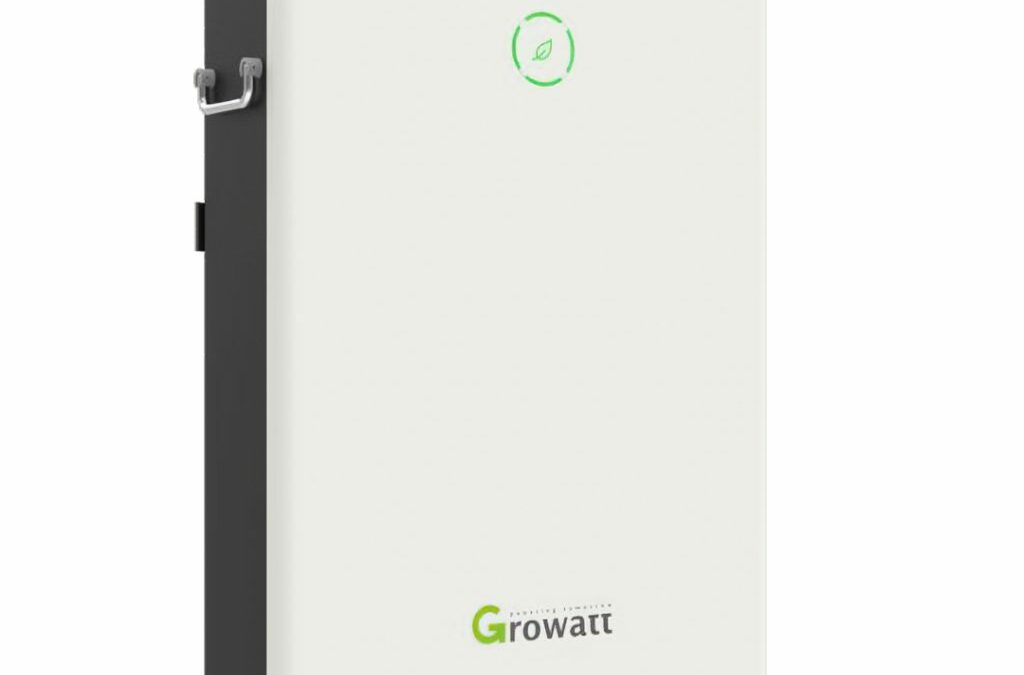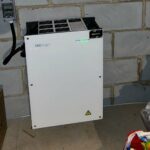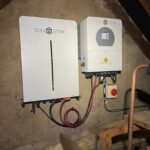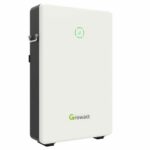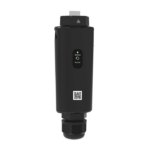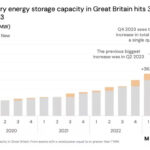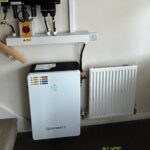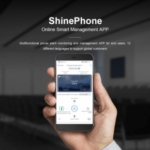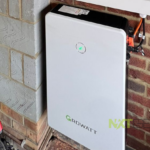The Sun: Our Brightest Battery
The world of renewable energy is a constantly evolving landscape, and solar power has emerged as a clear leader in the race towards sustainability. As the demand for clean and efficient energy solutions soars, so does the importance of understanding the key components that make solar installations truly effective. One such component, often overlooked but playing a crucial role in maximizing the benefits of solar energy, is the humble solar battery.
What is a Solar Battery?
At its core, a battery is a device that stores electrical energy in a chemical form and releases it as electric power when needed. In the context of solar panel installations, batteries serve as a crucial bridge between the intermittent nature of sunlight and the constant demand for electricity. By capturing excess energy generated during peak sunlight hours, batteries enable a continuous and reliable power supply, even when the sun dips below the horizon.
What Does a Solar Battery Look Like?
Batteries come in all shapes and sizes, depending on the application and the scale of the solar PV installation. For residential setups, lithium-ion batteries are popular for their compact size and long lifespan. Lead-acid batteries, though less efficient, are more affordable and often used in larger commercial systems. Flow batteries offer a promising option for large-scale energy storage due to their scalability and safety features. Regardless of their size or technology, all solar batteries share a basic design featuring positive (+) and negative (-) terminals, an electrolyte that allows ions to flow between them, and a separator to keep the electrodes apart.
The Role of Batteries in Solar Panel Installations
Energy Storage
The primary function of a battery in a solar PV system is to store excess energy generated by the solar panels during periods of abundant sunlight. This stored solar energy can then be tapped into when there is little sunlight like on cloudy days, or when there is no sunlight like at night, ensuring a consistent power supply for your home or business.
National Grid Independence
Solar batteries make solar panel installations more resilient and less reliant on the conventional power grid. By storing surplus solar energy, you can reduce your dependence on external power sources, promoting energy self-sufficiency and potentially decreasing your electricity bills.
Smooth Energy Delivery
Solar energy production naturally fluctuates due to factors like weather conditions and daylight variations. Solar batteries act as a buffer, smoothing out these fluctuations and resulting in a more stable and reliable power supply.
Why Does It Save Money?
There are several compelling financial reasons to consider incorporating solar batteries into your solar panel installation:
Peak Demand Management
Many energy companies charge higher rates during peak demand hours. By using stored energy from solar batteries during these peak times, you can avoid these expensive rates, leading to significant savings over time.
Skip Pricey Daytime Rates
At NXTGEN Energy we can help you set up your solar battery storage to “Force charge” your battery overnight on the cheaper rates. Plus, adjust based on weather and usage for even bigger savings. It’s like a financial fuel gauge for your home, keeping costs low and power flowing. Unleash the smart charging superpower!
National Grid Support Services
Some regions offer incentives or payments to solar users who contribute excess solar energy back to the National Grid. Solar batteries allow you to store surplus solar energy, which can then be sold back to the National Grid during high-demand periods, providing an additional revenue stream.
National Grid Recommendations
For comprehensive and reliable information on the benefits of battery storage in solar panel installations, the National Grid website is an invaluable resource. They emphasize the role of solar batteries in enhancing grid reliability, reducing emissions, and promoting sustainable energy practices. Their recommendations strongly encourage integrating battery storage with solar PV installations as a strategic and cost-effective approach to meeting the growing energy demands of the future.
As we navigate towards a more sustainable energy future, it’s clear that solar batteries play a vital role in optimizing the performance and economic viability of solar panel installations. By providing a means to store and utilize surplus solar energy, batteries contribute to grid independence, peak demand management, and overall cost savings. As technology continues to advance and the importance of clean energy intensifies, the marriage of solar panels and solar batteries stands as a beacon of hope for a greener and more sustainable world. Contact us today on 01268 928 690 or click on the ‘Enquire Now’ button below to learn more about how solar batteries can benefit your home or business!
FAQ: Solar Battery Storage
Batteries act as energy banks, storing excess solar power generated during the day for use when the sun isn’t shining. This smooths out energy production and helps you rely less on the National Grid.
Common choices include:
Lithium-ion: Compact, efficient, long lifespan, but pricier.
Lead-acid: Affordable, less efficient, good for larger systems.
Flow batteries: Scalable, safe, promising for large-scale storage.
Batteries offer several benefits:
Energy independence: Reduce reliance on the grid and potentially lower your electricity bills.
Smooth power supply: Enjoy consistent power even at night or during cloudy days.
Cost savings: Avoid peak demand charges by using stored energy during expensive times.
Potential income: Sell surplus energy back to the grid in some regions.
The main drawbacks are:
Initial cost: Adding a battery increases the upfront investment for your solar PV system.
Lifespan: Batteries eventually need replacement, though newer technologies are improving durability.
Maintenance: Requires periodic monitoring and care to ensure optimal performance.
Check out the National Grid website for reliable information and recommendations on battery storage for solar installations. You can also contact professional solar panel installers in your area like NXTGEN Energy for personalized advice.
Bonus tip: Remember, investing in batteries is a decision based on your specific needs and energy usage patterns. Talk to a solar expert to determine if battery storage is the right choice for you!
Latest Solar Battery Storage Posts
- Duracell Dura5: A Safe and Scalable Home Battery SolutionThe Duracell Dura5 Battery is shaking up the residential energy storage scene with its commitment to safety, performance, and adaptability. This Lithium Iron Phosphate (LiFePO4) battery system packs a punch with a 5.12kWh capacity (4.6kWh usable) and a reassuring 10-year warranty, ensuring long-lasting peace of mind for consumers. Safety First: The Power of LiFePO4 Chemistry… Read more: Duracell Dura5: A Safe and Scalable Home Battery Solution
- The Value Proposition of Battery Storage for Solar Panel SystemsIs your solar energy investment reaching its full potential? While solar panels gleaming on rooftops capture the sun’s rays, maximizing the utilization of that harnessed solar power is crucial for reaping the true rewards of clean energy. Solar battery storage holds the key, transforming your home or business into a self-sufficient energy hub. This post… Read more: The Value Proposition of Battery Storage for Solar Panel Systems
- SunSynk Batteries: Innovative Energy StorageSunSynk Batteries have emerged as a leading solution in the realm of energy storage, offering a range of innovative features and benefits that cater to various applications. With a focus on sustainability and cutting-edge technology, SunSynk Batteries have captured the attention of residential, commercial, and industrial consumers alike. This blog post delves into the intricate… Read more: SunSynk Batteries: Innovative Energy Storage
- Solar Industry Update: Battery Installations in LoftsThe British Standards Institute (BSI) has recently released new recommendations regarding home battery installations, including those in loft spaces. One common inquiry we receive from our customers following the publication of the Publicly Available Specification (PAS) is whether a solar battery can be installed in a loft. The answer is a resounding yes, with some… Read more: Solar Industry Update: Battery Installations in Lofts
- Who are NXTGEN Energy Ltd?NXTGEN Energy Ltd are a solar energy company based in Rayleigh, Essex, UK. They specialize in the installation of solar panels, battery storage systems, and electric vehicle chargers for homes and businesses across the UK. They are MCS certified, which means they meet the Microgeneration Certification Scheme’s standards for quality and safety. This makes them… Read more: Who are NXTGEN Energy Ltd?
- Quick Guide to Solar Batteries and StorageThe Sun: Our Brightest Battery The world of renewable energy is a constantly evolving landscape, and solar power has emerged as a clear leader in the race towards sustainability. As the demand for clean and efficient energy solutions soars, so does the importance of understanding the key components that make solar installations truly effective. One… Read more: Quick Guide to Solar Batteries and Storage
- How to Monitor Your Growatt Inverter with the Shine LAN-X DongleIf you have a Growatt inverter and you want to monitor its performance and status online, you might be interested in the Shine LAN-X dongle. This is a device that connects your inverter to your router via an Ethernet cable, allowing you to access the Shine Server platform and view your data on your computer… Read more: How to Monitor Your Growatt Inverter with the Shine LAN-X Dongle
- Solar Panel FinancingAt NXTGEN, we are committed to delivering excellent service and we understand that many customers may prefer the option of paying for their solar panels with finance. So, we’ve partnered with established credit brokers, Ideal4Finance, to enable customers to spread the cost of purchase with manageable monthly payments. We can offer 3 Flexible Finance Options… Read more: Solar Panel Financing
- Q4 2023 Marks Record Increase in Battery Energy Storage CapacityIn a significant development for the renewable energy sector, the end of 2023 witnessed the largest quarterly surge in battery energy storage. According to Modo Energy (https://modoenergy.com), a renowned energy research consultancy, a staggering 420MW of new battery energy storage capacity became commercially operational during this period. This remarkable achievement represents a remarkable 13% increase… Read more: Q4 2023 Marks Record Increase in Battery Energy Storage Capacity
- No More VAT On Solar Battery StorageUK Government announces 0% VAT on Solar Battery Storage Systems In a momentous announcement made in December 2023, the UK government has revealed substantial reforms to the current VAT relief on the installation of qualifying energy-saving measures. This development is cause for celebration among energy enthusiasts like us! Expanding on Chancellor Rishi Sunak’s previous announcement… Read more: No More VAT On Solar Battery Storage
- How to Monitor Your Growatt Inverter with the ShinePhone AppIf you have a Growatt inverter and you want to monitor its performance and status on your smartphone, you might be interested in the ShinePhone app. This is a mobile application that connects to the Growatt monitoring platform and allows you to access your inverter data anytime, anywhere. In this blog post, we will explain… Read more: How to Monitor Your Growatt Inverter with the ShinePhone App
- Growatt BatteriesGrowatt Batteries: A Smart Choice for Home Energy Storage If you are looking for a reliable, safe, and long-lasting battery solution for your home solar system, you might want to consider Growatt Batteries. Growatt is a leading manufacturer of solar inverters and battery storage systems, with over 10 years of experience and a global presence.… Read more: Growatt Batteries

